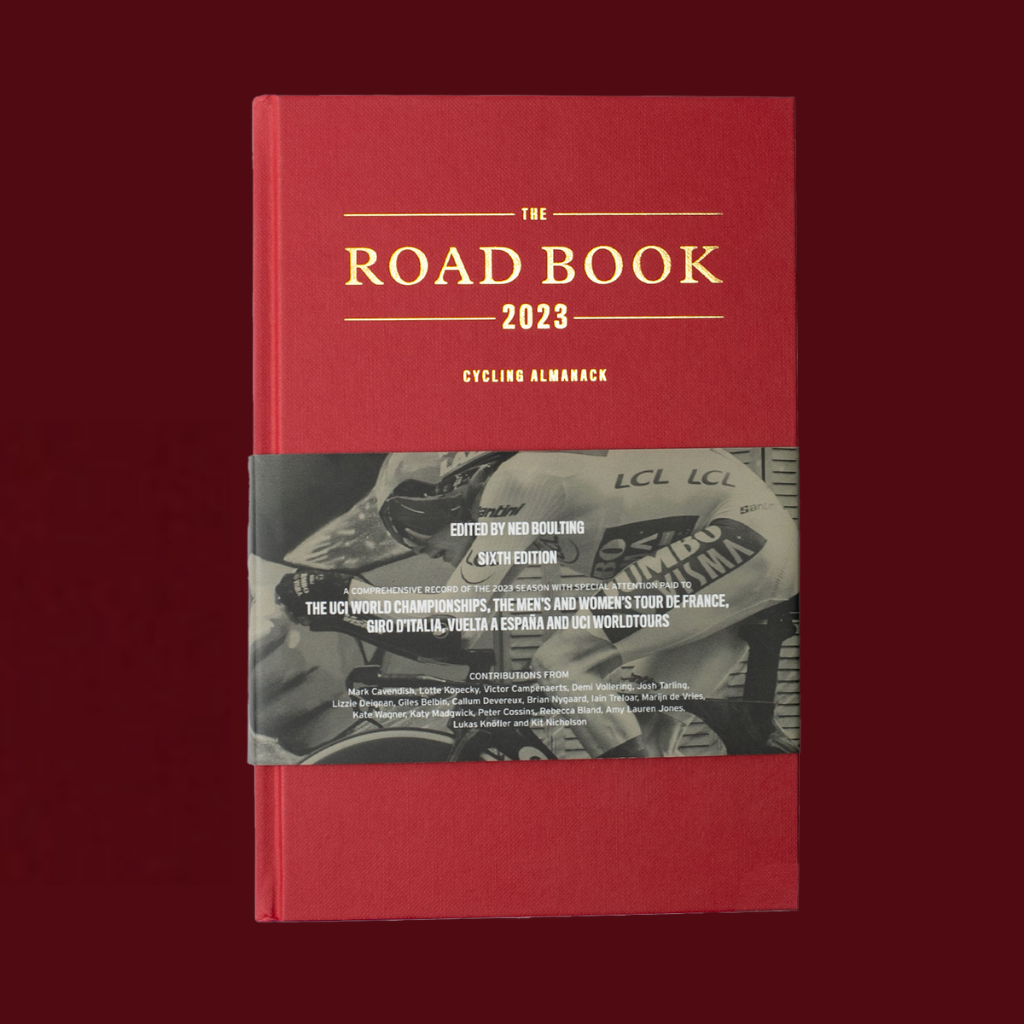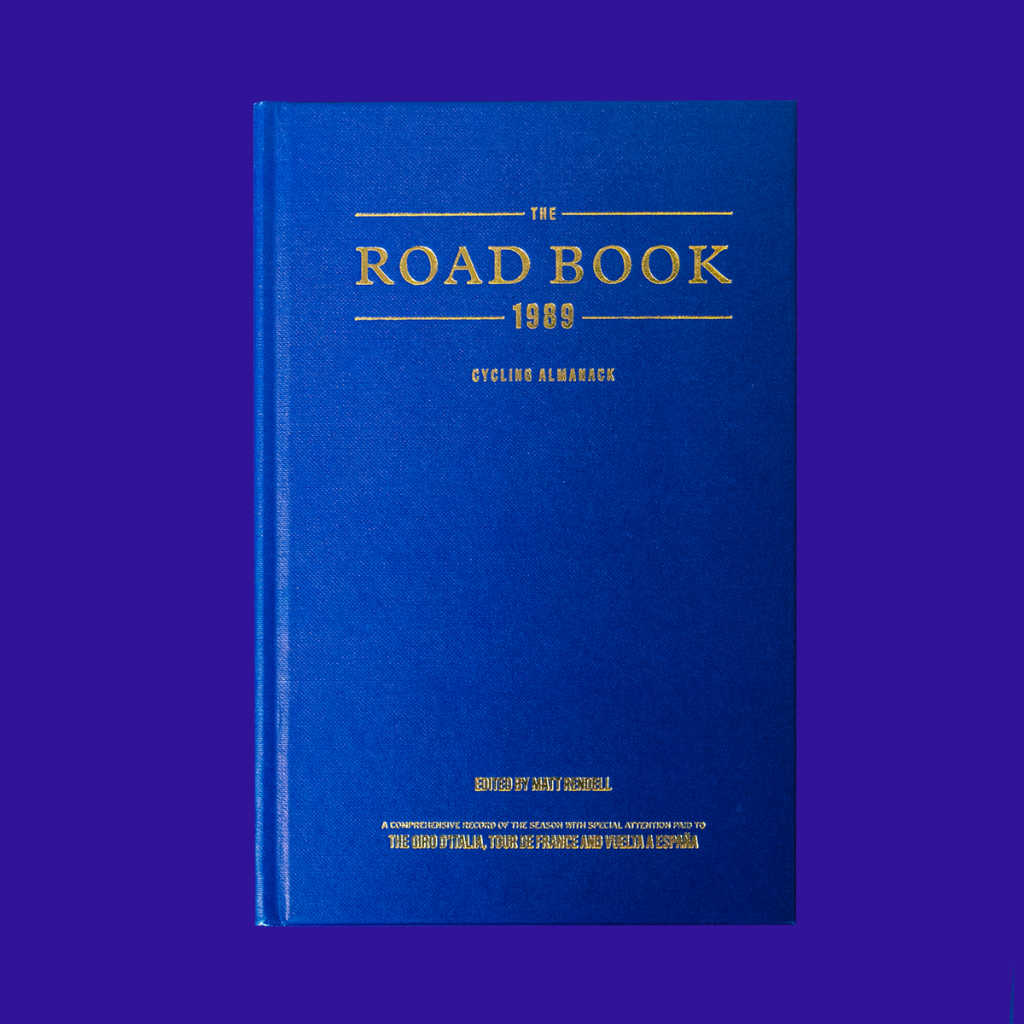Road BOOK RETROSPECTIVE
In the build-up to this weekend’s edition of Paris-Roubaix, have a read of Philippe Gilbert’s account of his victory in 2019, from The Road Book 2019. This essay was one of our editor, Ned Boulting’s favourite ‘Classics’ themed pieces and as such has been selected to join the Road Book Retrospective series.
——
Philippe Gilbert’s crowning achievement of his 17th season as a racer was victory in Paris–Roubaix. Added to his historical wins at Liège–Bastogne–Liège, Il Lombardia and the Tour of Flanders, this stunning result nudged him to within one race win (Milan–Sanremo) of a clean sweep of the Monuments – an achievement that no one in the modern era has ridden to fulfilment, and which has only ever been done by three other riders in history, including Eddy Merckx.
——
If I could have done, I would have stayed for 30 minutes under the water.
I was told that I was the first winner of Paris–Roubaix to go into the famous showers for a long, long time. It had been many, many years.
I told the photographers, ‘Look, I know it’s a historic moment, and you have to capture this. But then please leave.’
I was exhausted, I was empty. I was cold. It was the kind of cold that goes into you, you know? I was really shaking.
——
I rode my race perfectly. I have watched it back on TV, and I think it was really the perfect race.
I knew, with the headwind, that the break would go far. So from the start I was following all the moves. Six or seven times I got into big groups. And in the end, I had to pee. I peed on the bike because I didn’t want to lose too much time, and at that exact moment 20 guys went away. I was so angry! The start had been perfect until this, and just because I had to pee, I missed the move. I was just pissed off.
‘OK,’ I thought, ‘just focus.’
I knew that the gap was not that big. It was still a long, long way. I knew it was a headwind. I just stayed calm and didn’t show myself too much. In my mind I knew that I was not named in the favourites because I had been ill the week before. Everyone was thinking about the guys from Flanders, and I was behind them in the prognostics, and in the minds of the riders as well. So I had to take it calm, to stay in the background, wait my time.
At one point there was a big crash with Daniel Oss and some other guy going 50kmph on the cobbles. I think Sagan just avoided it. We had to brake really hard to avoid the crash, and we passed through. I saw Sagan there, and I thought, ‘OK, so now if I ride I am really fucked.’ You know how it is, if you make an effort, you kill yourself for the final. So I just took the risk, and held back. But there was a Lotto guy and Tony Martin, and I thought, ‘Let them ride.’ The gap was 40 seconds, so it was still under control and it came back together pretty much.
To this point, I had done everything perfectly. I hadn’t done a single pull. I’d just followed the moves. Now there were maybe only 80 guys.
On the Arenberg there was a full-on headwind. I was right in the mix, at the front, in the first 30 positions, but I felt that there was going to be a crash, so I went back through the bunch till I was in last position with Iljo Keisse, who’d just done the lead-out to put the guys in a good position onto the Arenberg. He saw me there and said, ‘What are you doing?!
’I said, ‘Relax. I can move up by the end of the sector.’ And I passed maybe 30 guys without really pushing because they’d started dropping in the headwind. It was quite easy to move up. After about 500 metres, I was in the first ten without taking any risk. And I knew that from this point it was going to be a cross-wind for about 25km. I knew from this point, I had to start my race. I didn’t know where or in which group. But I knew it would happen. I was really ready.
I wanted to attack, but the speed was too high. I was waiting. And then when Nils Politt went, I thought, ‘I know him. I know he is really strong. This is a good moment.’ I followed the move, and from this point I was always in a good position.
I spoke to him and said, ‘It’s not up to us. They’re going to decide the gap, behind. They’ll decide how much time to give us. So if we ride 50kmph or 53kmph it’s the same gap. The only difference is if we ride 53, we’re going to kill ourselves.’
We shared food.
At one point I heard on the radio that there was an attack behind, so I told him, ‘OK, now we speed up.’ That was when we dropped the guy from Bora
Then I heard that the guys were coming from behind, and that’s when I knew I was still in contention to win, because they were all doing really big efforts. I was going fast, but not ‘crazy fast’. I knew I was saving a lot compared to them. I knew I had to attack again at some point.
I didn’t speak to Yves Lampaert, my teammate, because I didn’t want him to know my tactic. I didn’t want to tell him. I would trip myself up by saying something. I thought, ‘I’ll just go for the win.’ So I didn’t speak to anyone, not even him. I almost considered him to be on a different team because I knew I had to beat him also. I didn’t want to give any presents. I really wanted to win, myself.
I knew that Lampaert was also riding for himself because I heard on the radio that they were trying to calm him down, telling him, ‘It’s not up to you to ride.’ I was pissed off when I heard that. He wasn’t playing the team tactic. So this gave me extra motivation.
There were still a couple of sectors to do. I was scared of a mechanical or a puncture. That’s why I took the lead there, so that I could choose my line. I could see the cobbles coming. I was riding hard, but not full gas, because I knew it was important to ride to the finish with Nils. I think we knew exactly what to do. The goal was to stay away. Then we’d get first and second.
Then I heard that Lampaert was alone and chasing me. And at that point I thought, ‘OK, now I can use him.’ So I said to Politt, ‘I’ll ride until the last 3km, and then I’ll stop because I have a teammate chasing.’ He understood that it’s fair to play it like that. The last 2km, I didn’t pull any more. Nils was in a very difficult position. He had no choice.
I was still scared, when we came to the velodrome, that Lampaert would come back, because the last gap I’d heard was 20 seconds. So I was watching behind, and looking at Nils. I knew he was fast, but I didn’t know how fast. I was not sure.
I was nervous. I had never sprinted on a velodrome before. This was the first time in my life. I didn’t know how to do it. I was scared to make a mistake. I had seen so many times that if you use the track really well you can come back, even over the last 50 metres.
I think I did it well.
Winning was really different.
When I won all my other Classics, I won because I was clearly the best, and I knew it before. When I won my second Lombardia, for example, I attacked alone, from almost 35km against Scarponi. And all the other Classics I have won, it was clear. I finished alone. I knew that no one could beat me. It was quite clear. Maybe the first Lombardia was closer, in 2009, when I had to sprint against Samu Sánchez; that was the most similar, ten years before.
I am now in that small club of special winners in the history of cycling. In fact, I’m the only one to win all these races in recent history. It’s almost like being the first one to do it, since cycling has become more specialised. It’s almost unique. The only rider of my generation who could do it – physically or mentally – is Michal Kwiatkowski, but he’s focused too much on GC, I think. Now it’s already late for him.
——
When I was a kid I never went to see Paris–Roubaix. But I always watched it on TV. Something would always happen. You just watched it and watched it, and you didn’t even go to the toilet in case you’d miss something.
I always thought, ‘I’d like to do that, one day. It’d be nice to win that race.’
If you enjoyed Philippe’s essay, why not pick up your very own copy of The Road Book 2019 from our online shop: BUY “THE ROAD BOOK” HERE
Use the coupon code: RETROCLASSICS for a 10% discount.






